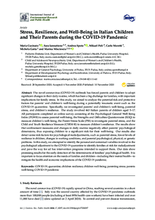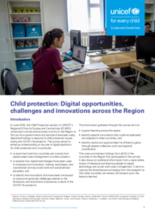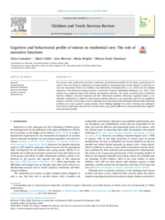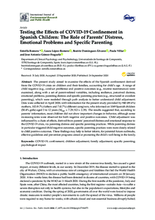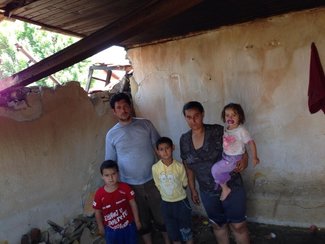

Displaying 81 - 90 of 544
In this study, the authors aimed to analyze the potential risk and protective factors for parents’ and children’s well-being during a potentially traumatic event such as the COVID-19 quarantine.
UNICEF is seeking a consultant to consolidate and document the learning from the Supported-Independent Living (SIL) project for unaccompanied children (UAC) pilot, in order to draw lessons from the experience.
With a view to securing programme scale up and sustainability at the national level, UNICEF in Montenegro is commissioning a feasibility assessment in order to develop recommendations for the Government of Montenegro on how the Parenting for Lifelong Health Programme for Young Children can be implemented at scale by national service providers.
No reconocimiento de Kafala constituida entre ciudadanos marroquíes a efectos de adopción. Antecedentes y alcance de la prohibición contenida en el artículo 19.4 de la Ley de adopción internacional.
This report presents findings from a survey conducted across the Europe and Central Asia Region which aimed to enhance understanding of the use of digital platforms for child protection.
The present study analysed the executive, emotional, and behavioural profile of 121 minors aged between 13 and 17, who were living in residential care homes funded by Asociación Nuevo Futuro (Spain).
The present study aimed to examine the effects of the Spanish confinement derived from the COVID-19 crisis on children and their families, accounting for child’s age.
This study examines a sample of 1705 cases of unaccompanied and separated children (UASCs) included in a pilot project for early recovery child protection intervention.
This article presents the results of a qualitative study whose objective was to collect information on the perceptions of changes in parents and their children who are in the Spanish foster care system after completing a positive parenting programme.
This evaluation study examined a Family Services Centre (FSC) operating in a socio‐culturally deprived suburban area of Southern Italy to explore how to promote innovative practices to meet increasingly complex family needs.

